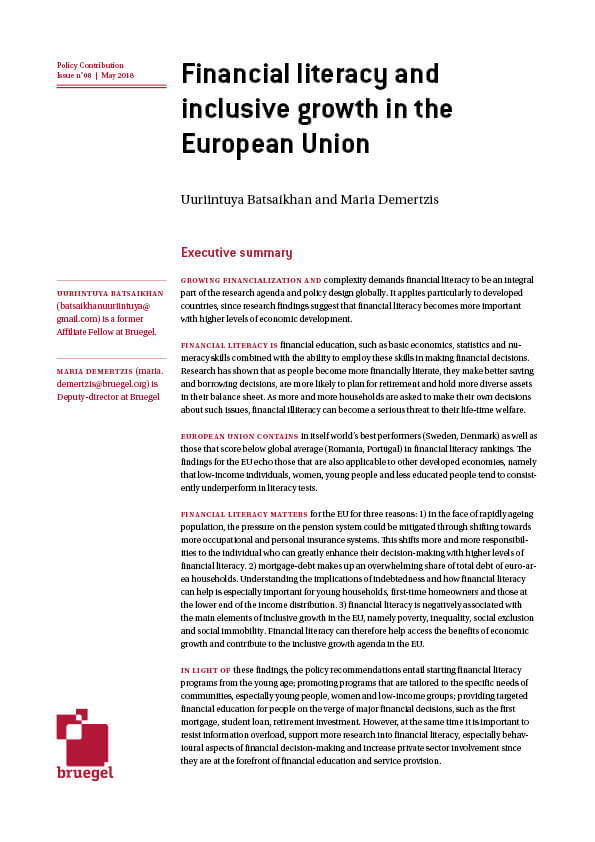Blueprint
Higher aspirations: an agenda for reforming European universities
Since the introduction of the Shanghai ranking of the world‘s universities it has been clear that European universities are underperforming. This blueprint discusses the potential explanations and points at different reform priorities for higher education in Europe.
Since the introduction of the Shanghai ranking of the world‘s universities it has been clear that European universities are underperforming. This blueprint discusses the potential explanations and points at different reform priorities for higher education in Europe.














